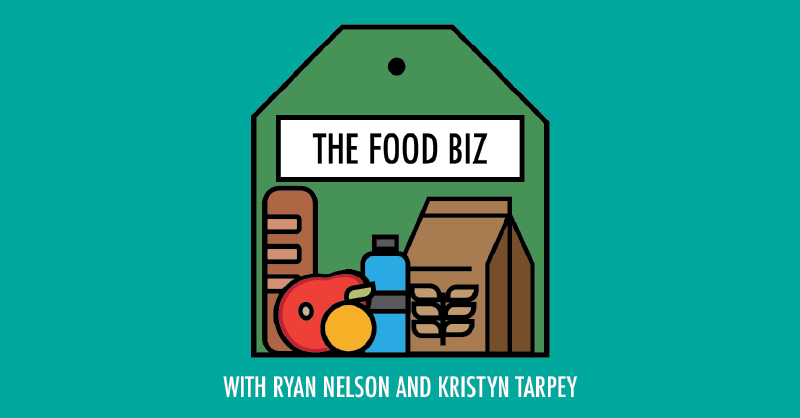Commodity Blog
Oct 25 2021
The Food Biz Episode 14 Recap: Co-op Cooperation with Russ Vering

On this week’s episode of The Food Biz, hosts Kristyn Tarpey and Ryan Nelson are joined by Russ Vering, Vice President of Nutrition at Frontier Cooperative, who has been involved in the livestock world, specifically nutrition, for 40 years. The three discuss the biggest changes within the ag industry, organic vs. non-organic meat and feed production, labor shortages, increased costs for feed, and much more.
Russ bought his father’s livestock business from him and in 2007, he partnered with Frontier Cooperative to build a new milling facility in Nebraska, which serves as an integrated swine producer. They also manufacture feed for some name brands in large farm supply stores.
Kristyn kicks off the conversation by asking Russ what the biggest changes are that he has seen from 1976 to 2021. Russ explains that relationships are what have changed the most. It’s a smaller number of people that are involved in the swine and poultry industries. They went from having 500 customers and doing 6 million dollars worth of feed business to having 10 customers and doing 20 million dollars worth of feed business. He explains that there are contract services now, and farms are still involved but it’s more of an integrated business model.
Russ also explains that he doesn’t think capitalism allows for small farms, it forces farmers to expand their acreage in order to cut costs and improve efficiency. When you have a bigger business you’re also empowered to use more technology that isn’t available to smaller farms.
Russ added that a big struggle for some farms right now is that a lot of people aren’t interested in being available 24/7. If they’re gonna be bigger, they have to work 24/7, it’s not a 9-5 Monday-Friday job, they’re always “on” and have to accept that in order to be in the industry. The labor shortage we’re experiencing within the country is making this even more difficult. Russ explained that Nebraska unemployment is really low so the industry is finding it challenging to hire workers.
Kristyn then points out the growing popularity of organic products and asks Russ if he has any organic farming currently or if he plans on it. Russ said that he has had several people approach them in terms of organic department store-type feed products but the problem he runs into is that they don’t come with enough volume to make it economically viable, so he has struggled with that.
He would love to produce organic feed and in the future, he wants to move non-organic production to one mill and open another mill strictly for organic production but for now, he wouldn’t be producing enough tons to make it worth it. Also, it’s very important to separate production so there is no cross-contamination, which he currently wouldn’t be able to achieve.
Ryan points out that there are some people with more disposable income, maybe because they weren’t going out to eat because of the pandemic - whatever the reason is, they’re looking to spend money on more premium, non-GMO, organic ingredients to cook with.
The three wrap up the episode by discussing the increased prices for feed and feed production. Russ states that this is in direct correlation to increased prices in corn and soybeans. Russ thinks there’s an increased demand and that’s why we’re seeing these prices, but we will also have a higher yield this year so hopefully, we will see a drop in prices.
This episode covered a lot of ground, so make sure to listen to the entire episode on Spotify or in the Apple Podcasts App! While you’re there, don’t forget to subscribe. Also, feel free to reach out to us by email at news@barchart.com with any discussion topics, questions, comments, or overall feedback; Ryan and Kristyn would love to hear from you!
Barchart Updates
